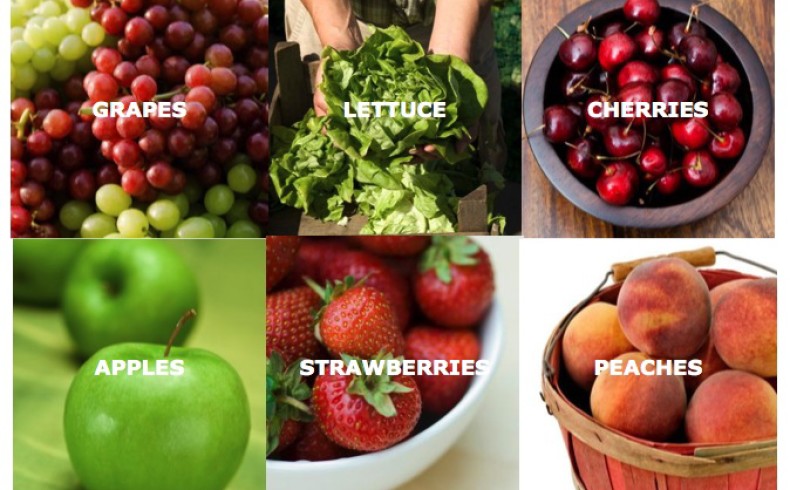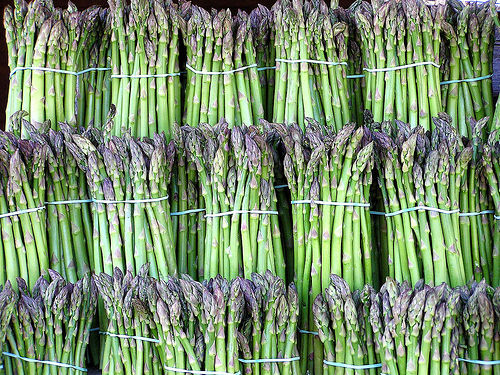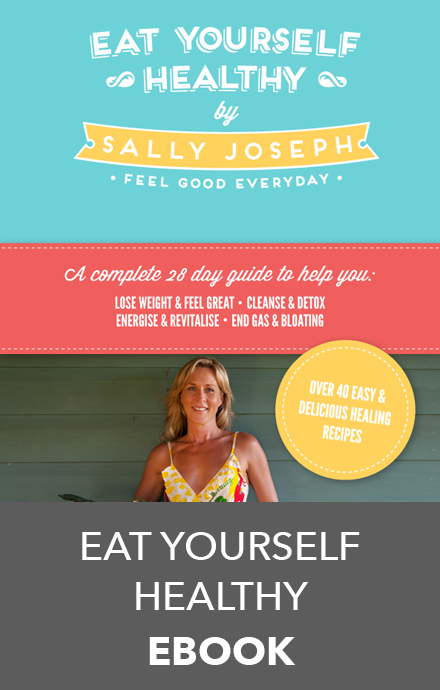
There’s a lot of talk about whether eating organically produced food is worth the money and health benefits. This is something I get consulted on regularly, including a recent article I contributed to for Fernwood Gym’s magazine.
My advice when it comes to buying organic food, at the very least stick to organic eggs and chicken (you can read why here) and avoid non-organic varieties of ‘THE DIRTY DOZEN’ fruit and vegetables – created by The Environmental Working Group (EWG).
Some of you may have heard a bit about the The Dirty Dozen recently, but not understand exactly what it is. Put simply, it is a list of the fruits and vegetables found by the EWG to contain the highest levels of chemical pesticide residue.
Any food that has been contaminated with chemical pesticides, herbicides or fungicides will pose a hazard to your health, but some foods will be more heavily contaminated than others, which is what the Dirty Dozen list seeks to reveal. If your budget does not allow for buying all your fresh fruit and veg organic, you can at least avoid those with the highest levels of chemical residue, by purchasing organic varieties of those on the Dirty Dozen list.
The Dirty Dozen for 2013
- Apples
- Celery
- Cherry tomatoes
- Cucumbers
- Grapes
- Peppers / capsicum
- Nectarines (imported)
- Peaches
- Potatoes
- Spinach
- Strawberries
- Blue berries
Dirty Dozen Plus: Kale/collard greens and Summer squash
Personally I am surprised raspberries did not make it onto the list, because they are notorious for the high levels of chemical fungicides they contain, so I recommend adding them to the Dirty Dozen list and only purchasing organic, especially if you are feeding them to your kids or using the frozen varieties regularly to your morning smoothies.
The EWG have also put out the list of fresh fruit and veg with the lowest levels of chemical residue referred to as THE CLEAN FIFTEEN….nifty name eh. These are the fruit and veg you could compromise on buying non-organic if your trying to stretch the budget or finding it difficult to find organic varieties.

The Clean Fifteen for 2013
- Asparagus
- Avocados
- Cabbage
- Cantaloupe
- Sweet corn
- Eggplant
- Grapefruit
- Kiwi
- Mangoes
- Mushrooms
- Onions
- Papayas
- Pineapples
- Sweet peas (frozen)
- Sweet potatoes
Now one vegetable I am going to over ride in this list is sweet corn, more so if you are living in the United States, because so much of their corn is genetically modified, something I DO NOT advocate. Thankfully in Oz we tend to avoid producing GMO’s….for now.
I’ll also add citrus to the clean fifteen as I tend to buy non-organic lemons, limes and grapefruit when my orchid is not bearing these fruit (and I don’t use any sprays), because I generally remove the skin and add the juice to my morning Green Goddess juice or to salad dressings each day.
So folks, when it comes to prioritising which foods to eat organic, avoid the dirty dozen, always buy organic nuts, and milk if you are a consumer of the cow juice as well as chicken and eggs, to avoid the anti-biotics. If you cannot justify the price of organic beef, at least avoid feed lot raised beef and look for grass fed over grain fed. Follow this list and you will be avoiding the worst offenders for chemically contaminated food.
Do you believe in buying organic food? If so how much of your weekly shop includes organic food or is at least free of chemicals?


Health & Lifestyle Tips
Delicious Healthy Recipes
Educational & Recipe Videos









Hi Sandra, not necessarily, as small producers can still use chemical sprays, so your best to clear this up with the owner of the store your purchasing from and have them verify this with the farmer they buy from x
Hi Sandra, not necessarily, as small producers can still use chemical sprays, so your best to clear this up with the owner of the store your purchasing from and have them verify this with the farmer they buy from x
Hi Sandra, it’s great that you are buying produce from local farmers, however sadly this does not guarantee they are not using chemical sprays on their produce, so your best to ask of the co-op can guarantee whether they are or not. I but my fresh produce direct from the farmer at my local farmers markets but I always ask if they are at least chemical spray free 🙂
Hi Sandra, it’s great that you are buying produce from local farmers, however sadly this does not guarantee they are not using chemical sprays on their produce, so your best to ask of the co-op can guarantee whether they are or not. I but my fresh produce direct from the farmer at my local farmers markets but I always ask if they are at least chemical spray free 🙂
Hi Sally,
I buy most of my fruit and vege from a local food co-op. They source everything from local farmers. Would it be safe to assume that these have less sprays in them as opposed to say big commercial farms?
Thanks
Hi Sally,
I buy most of my fruit and vege from a local food co-op. They source everything from local farmers. Would it be safe to assume that these have less sprays in them as opposed to say big commercial farms?
Thanks
Hi Sally,
I read also about buying organic for my fresh food – fruit, veges, and meat. What about essential pantry items like canned beans, flours for baking etc. Should we aim to buy these organically as well or are there particular items that are more or less susceptible?
Hi Sally,
I read also about buying organic for my fresh food – fruit, veges, and meat. What about essential pantry items like canned beans, flours for baking etc. Should we aim to buy these organically as well or are there particular items that are more or less susceptible?